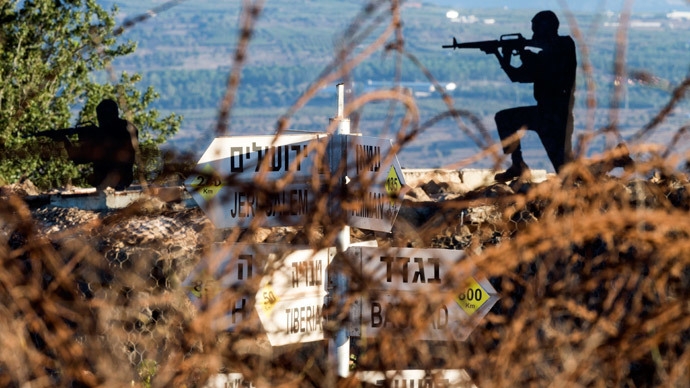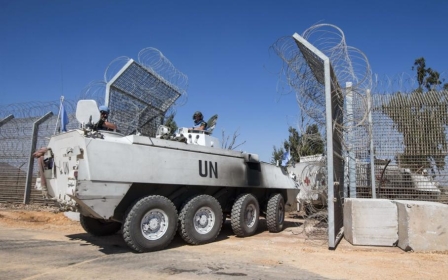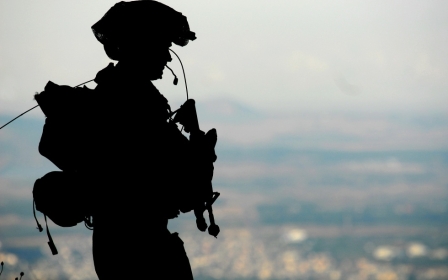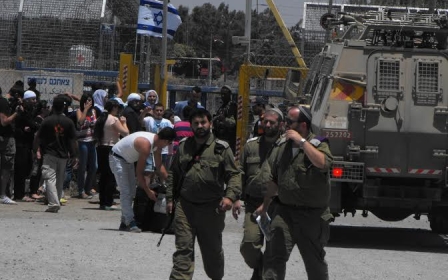Philippine UN peacekeepers safe after 'greatest escape'

Dozens of Filipino UN peacekeepers performed the "greatest escape" from besieging Syrian rebels, slipping away under the cover of night after rebels rammed their Golan Heights outpost with armed trucks, the Philippine military said Sunday.
All 75 soldiers serving with a United Nations peacekeeping force in the Middle East flashpoint zone reached safety after the rebels, some linked to al-Qaeda, surrounded them and demanded their weapons on Thursday, military chief General Gregorio Catapang said.
Catapang called it "the greatest escape" and praised the soldiers.
"Although they were surrounded and outnumbered they held their ground," he told reporters.
However the fate of 44 UN peacekeepers from Fiji remained unknown. The Fijians were taken captive by rebels just before the Filipinos were besieged.
The troops are part of a UN peacekeeping force which has been stationed in the Golan Heights since 1974 to monitor a ceasefire between Israel and Syria.
"Everyone is in a safe position. We left our (old) position but we brought all our arms," said Lieutenant Colonel Ramon Zagala.
President Benigno Aquino's spokesman Herminio Coloma issued a statement thanking the UN force as well as Syria, Israel, Qatar and the United States for their assistance in the crisis.
"It is in our nation's interest to give priority to (the soldiers') safety but we will not turn our backs on our commitment to global security particularly in the Golan Heights and the Middle East," Coloma said.
He did not elaborate on the help provided by the other countries although the head of peacekeeping operations, Colonel Roberto Ancan said separately that the Syrians had provided "indirect fire support" that took the pressure off the besieged Filipinos.
From siege to safety
An initial group of 35 Filipino troops were picked up from their position by Irish UN soldiers in armoured vehicles on Saturday after Syrian rebels attacked their comrades positioned about four kilometres away, said the Philippine military.
The remaining 40 soldiers engaged in a "seven-hour firefight" with rebels who tried to ram the gates with pick-up trucks carrying anti-aircraft guns.
The soldiers, who were armed only with machine-guns and rifles, held off the rebels who even used a mortar to shell their positions, Ancan said.
The troops later walked to safety to a UN position just over two kilometres away.
In a statement, the UN said the 40 Filipino peacekeepers withdrew shortly after midnight "during a ceasefire agreed with the armed elements".
They later moved to Camp Ziouani behind UN lines.
"There is no more standoff. All are safe," Zagala told AFP.
The troops, burdened by their equipment and the cold weather, walked for about an hour and 40 minutes in the dark to reach safety, he said in Manila.
The peacekeepers were besieged on Thursday by rebels who demanded they give up their weapons.
The rebels, including some linked to al-Qaeda's Syria affiliate, al-Nusra Front, had earlier taken hostage 44 Fijian peacekeepers and even used an English-speaking Fijian hostage to relay their demand to the Filipino peacekeepers, the military earlier said.
However the Filipinos refused to surrender their weapons and remained in their fortified positions.
Asked what the Filipino peacekeepers would do now, Zagala said "we continue our mission. Our commitment is still there".
On 23 August, the Philippine Defence Department announced that it would withdraw the 331-strong Filipino contingent serving as part of the United Nations Disengagement Force (UNDOF) in the Golan Heights at the end of their tour of duty in October due to the worsening security situation.
In March 2013, Syrian rebels held 21 Filipino UN peacekeepers for four days and then in May held four Filipino peacekeepers for five days before releasing them.
A Filipino peacekeeper was wounded by shrapnel last June amid fighting between the rebels and Syrian forces.
Israel seized 1,200 square kilometres of the Golan Heights during the 1967 Six-Day War, then annexed it in a move that has never been recognised by the international community.
The UN peacekeeping force is there to monitor the ceasefire.
New MEE newsletter: Jerusalem Dispatch
Sign up to get the latest insights and analysis on Israel-Palestine, alongside Turkey Unpacked and other MEE newsletters
Middle East Eye delivers independent and unrivalled coverage and analysis of the Middle East, North Africa and beyond. To learn more about republishing this content and the associated fees, please fill out this form. More about MEE can be found here.




